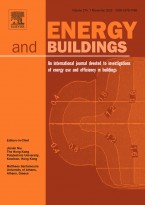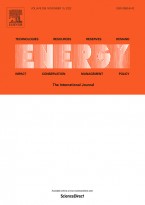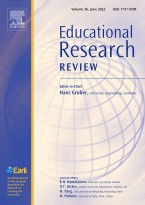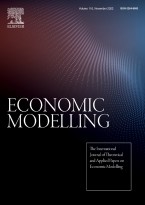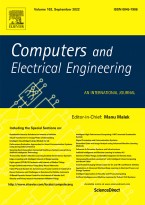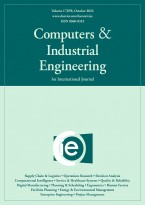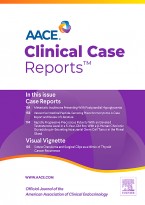
چکیده فارسی
طوفان تیروئید همراه با کما در بیمار مبتلا به کارسینوم متاستاتیک تیروئید و بیماری گریوز: نبرد را برد اما جنگ را باخت
چکیده هدف: توصیف پسزمینه و رویدادهایی که ممکن است طوفان تیروئید (TS) همراه با کما را ایجاد کند و همچنین دوره مداخله درمانی و پاسخ بیمار به درمان را توصیف کند. روشها: ما یک مورد TS را با کما شامل رسوبکنندهها، تستهای عملکرد تیروئید، سونوگرافی تیروئید، یافتههای توموگرافی کامپیوتری، دوره، درمان و نتیجه ارائه میکنیم. یافتهها: خانمی 71 ساله به دلیل تومور ساکرال 12.4 سانتیمتری که به تازگی تشخیص داده شده بود، با کمردرد و ضعف پای راست در بیمارستان بستری شد. تومور از کارسینوم پاپیلاری تیروئید با تمایز ضعیف متاستاز داده بود. بیمار دچار TS شد که با تیروتوکسیکوز همراه با تب، تاکی کاردی و تغییر وضعیت روانی که طی چند روز به کما میرود، مشخص میشود. درمان شامل داروهای ضد تیروئید، استروئیدها، محلول اشباع یدید پتاسیم، ال-کارنیتین، تعویض پلاسما درمانی، و تیروئیدکتومی کما و TS طولانی مدت را معکوس کرد، اما کوادری پلژی شل باقیمانده باقی ماند. بیمار در نهایت فوت کرد. نتیجهگیری: این بیمار با چندین علت نادر TS (توموگرافی کامپیوتری کنتراست و بیماری گریوز در زمینه سرطان تیروئید با حجم بالا) و تظاهرات نادر TS (کما) مراجعه کرد. TS شامل تب، تاکی کاردی، و شروع سریع کمای طولانی مدت در زمینه تیروتوکسیکوز بود. عوامل ایجاد کننده TS ممکن است شامل بزرگ شدن بافت تیروئید ناشی از گواتر، متاستاز دوردست، عمل، قرار گرفتن در معرض کنتراست توموگرافی کامپیوتری و سطوح بالای ایمونوگلوبولین تحریک کننده تیروئید باشد. درمانهای چندوجهی، مهمتر از همه تبادل پلاسما درمانی، کما و TS را برطرف کرد، اما بیمار همچنان تسلیم بیماری همراه شد. ما با توصیه انجمن تیروئید ژاپن برای تعویض پلاسمای درمانی در بیماران مبتلا به TS، به ویژه آنهایی که در کما هستند و در عرض 24 تا 48 ساعت پس از شروع درمان متداول TS بیدار نمی شوند، موافقیم. اختصارات: CT = توموگرافی کامپیوتری; GD = بیماری گریوز; SSKI = محلول اشباع یدید پتاسیم. TS = طوفان تیروئید; TSH = هورمون محرک تیروئید. TSI = ایمونوگلوبولین محرک تیروئید. TT3 = تری یدوتیرونین کل. TT4 = تیروکسین کل
چکیده انگلیسی
Thyroid Storm With Coma in a Patient with Metastatic Thyroid Carcinoma and Graves Disease: Won the Battle but Lost the War
ABSTRACT Objective: To describe the background and events that may precipitate thyroid storm (TS) with coma as well as the course of treatment intervention and our patient's response to treatment. Methods: We present a case of TS with coma including precipitants, thyroid function tests, thyroid ultrasound, computed tomography findings, course, treatment, and outcome. Results: A 71-year-old woman was hospitalized with back pain and right leg weakness due to a newly diagnosed, 12.4-cm sacral tumor. The tumor had metastasized from poorly differentiated papillary thyroid carcinoma. The patient developed TS characterized by thyrotoxicosis with fever, tachycardia, and mental status change progressing to coma over several days. Treatment including antithyroid drugs, steroids, saturated solution of potassium iodide, L-carnitine, therapeutic plasma exchange, and thyroidectomy reversed the prolonged coma and TS, but left residual flaccid quadriplegia. The patient eventually died. Conclusion: This patient presented with multiple rare causes of TS (computed tomography contrast and Graves disease in the setting of high-volume thyroid cancer) and a rare manifestation of TS (coma). The TS included fever, tachycardia, and rapid onset of prolonged coma in the setting of thyrotoxicosis. Precipitants of the TS may have included enlarged thyroid tissue from goiter, distant metastasis, the operation, computed tomography contrast exposure, and high levels of thyroid-stimulating immunoglobulin. Multifaceted treatments, most importantly therapeutic plasma exchange, resolved the coma and TS, but the patient still succumbed to comorbidity. We agree with the Japan Thyroid Association recommendation for therapeutic plasma exchange in patients with TS, especially those in a coma who do not awaken within 24 to 48 hours of starting conventional TS treatment. Abbreviations: CT = computed tomography; GD = Graves disease; SSKI = saturated solution of potassium iodide; TS = thyroid storm; TSH = thyroid-stimulating hormone; TSI = thyroid-stimulating immunoglobulin; TT3 = total triiodothyronine; TT4 = total thyroxine
